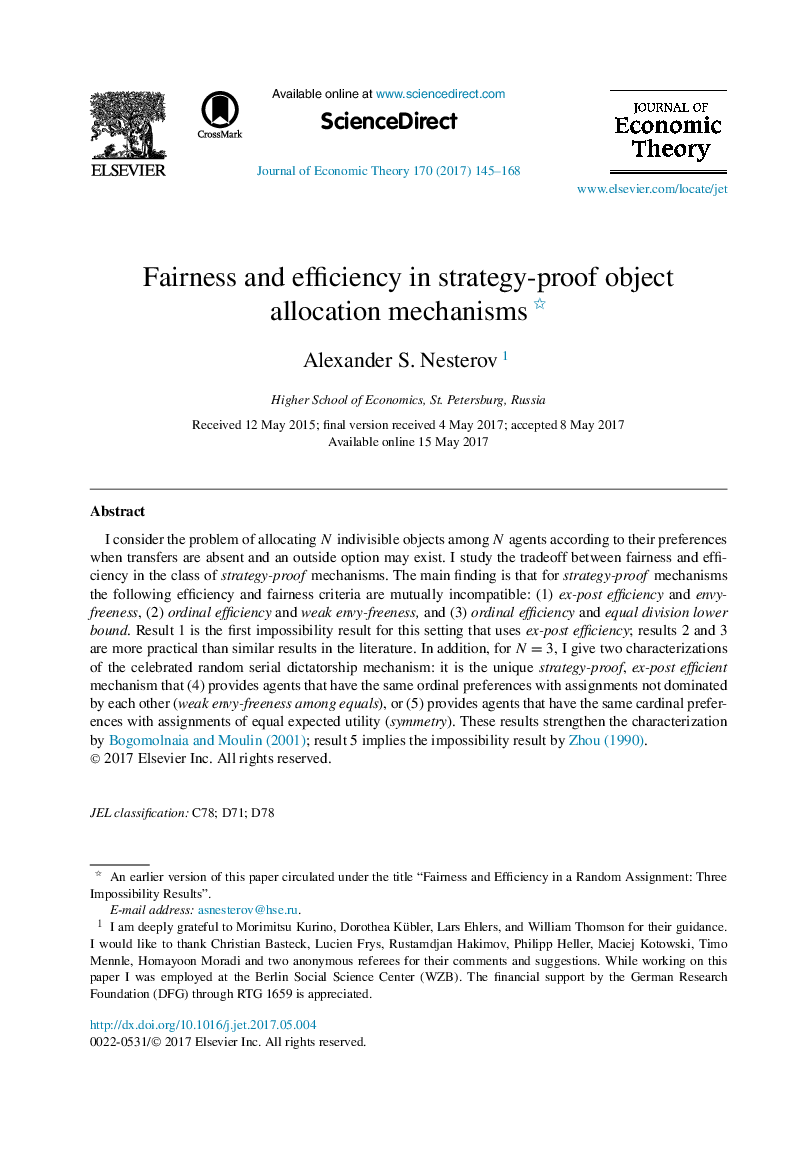| Article ID | Journal | Published Year | Pages | File Type |
|---|---|---|---|---|
| 5100077 | Journal of Economic Theory | 2017 | 24 Pages |
Abstract
I consider the problem of allocating N indivisible objects among N agents according to their preferences when transfers are absent and an outside option may exist. I study the tradeoff between fairness and efficiency in the class of strategy-proof mechanisms. The main finding is that for strategy-proof mechanisms the following efficiency and fairness criteria are mutually incompatible: (1) ex-post efficiency and envy-freeness, (2) ordinal efficiency and weak envy-freeness, and (3) ordinal efficiency and equal division lower bound. Result 1 is the first impossibility result for this setting that uses ex-post efficiency; results 2 and 3 are more practical than similar results in the literature. In addition, for N=3, I give two characterizations of the celebrated random serial dictatorship mechanism: it is the unique strategy-proof, ex-post efficient mechanism that (4) provides agents that have the same ordinal preferences with assignments not dominated by each other (weak envy-freeness among equals), or (5) provides agents that have the same cardinal preferences with assignments of equal expected utility (symmetry). These results strengthen the characterization by Bogomolnaia and Moulin (2001); result 5 implies the impossibility result by Zhou (1990).
Related Topics
Social Sciences and Humanities
Economics, Econometrics and Finance
Economics and Econometrics
Authors
Alexander S. Nesterov,
